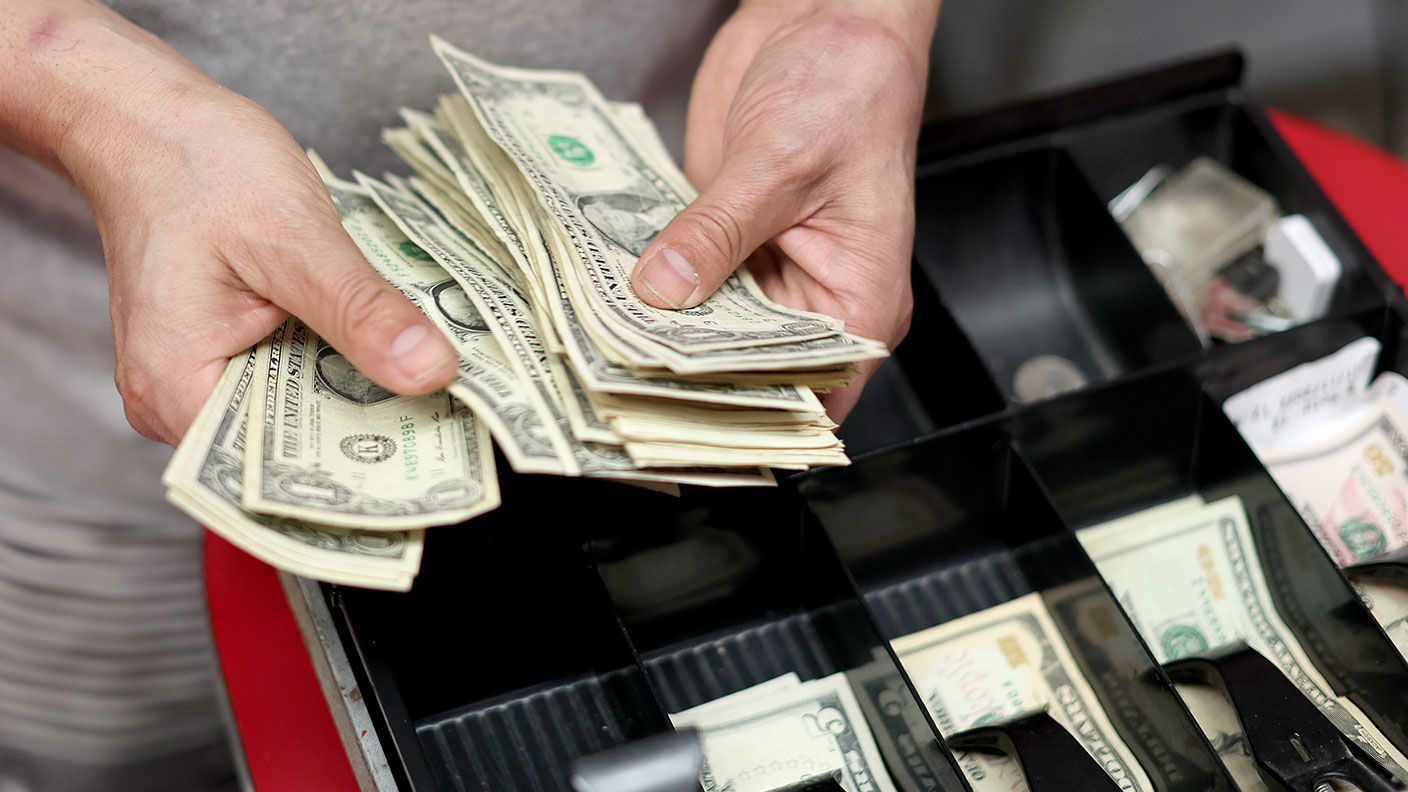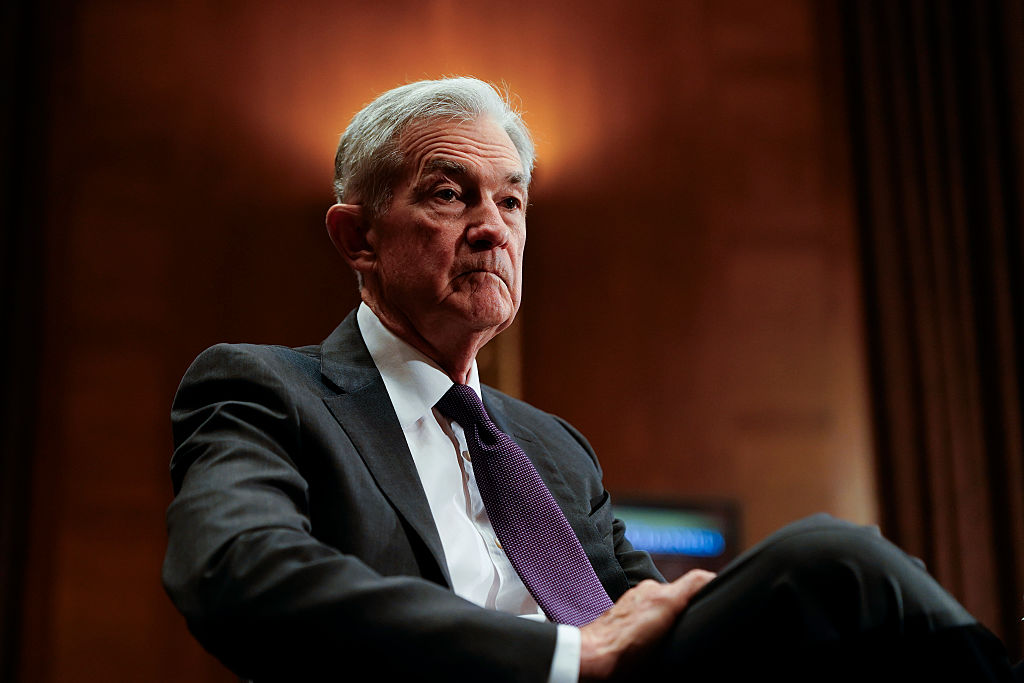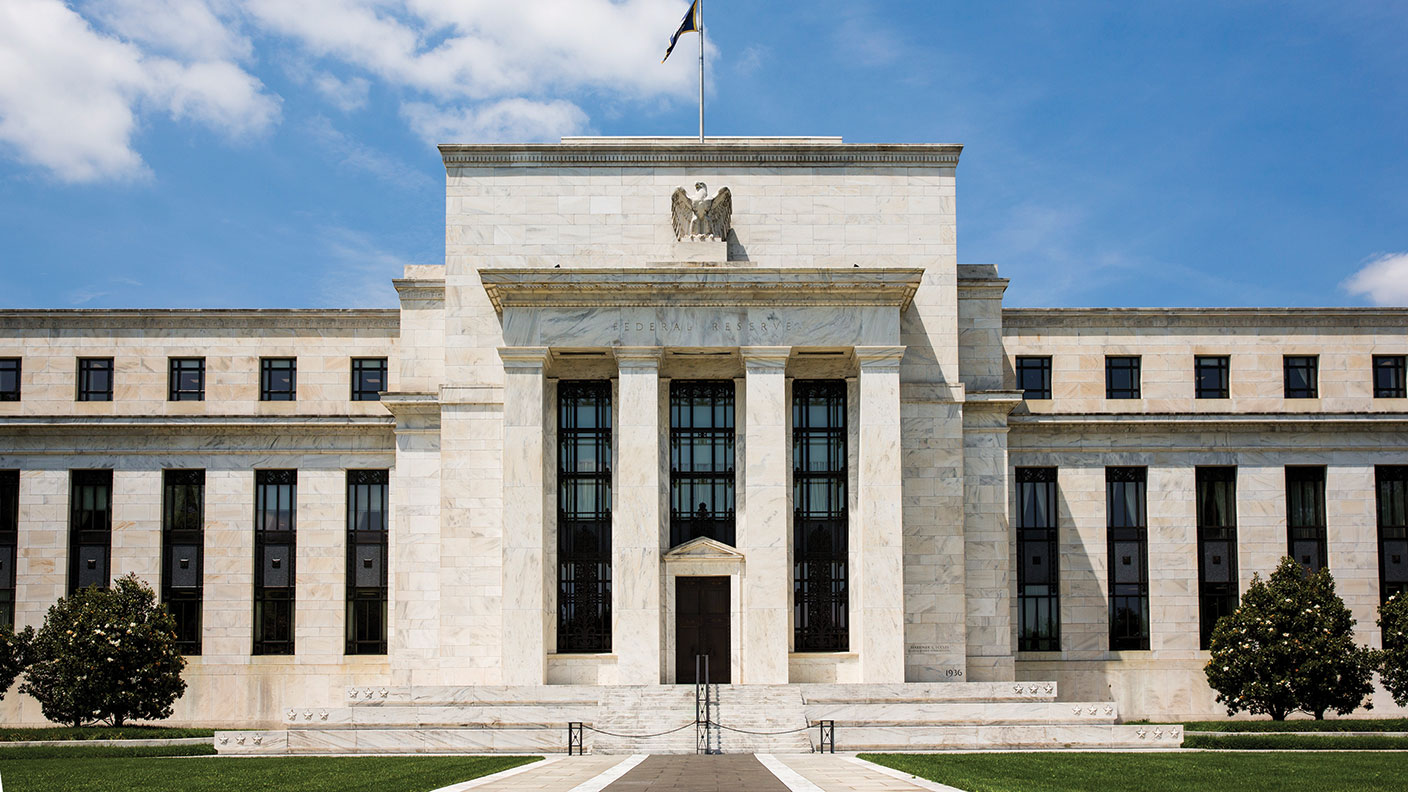US inflation is at its highest since 1982. Why aren’t markets panicking?
US inflation is at 7% – the last time it was this high interest rates were at 14%. But instead of panicking, markets just shrugged. John Stepek explains why they’re so relaxed about things.


Get the latest financial news, insights and expert analysis from our award-winning MoneyWeek team, to help you understand what really matters when it comes to your finances.
You are now subscribed
Your newsletter sign-up was successful
Want to add more newsletters?

Twice daily
MoneyWeek
Get the latest financial news, insights and expert analysis from our award-winning MoneyWeek team, to help you understand what really matters when it comes to your finances.

Four times a week
Look After My Bills
Sign up to our free money-saving newsletter, filled with the latest news and expert advice to help you find the best tips and deals for managing your bills. Start saving today!
Prices in the US are rising at the fastest rate since 1982.
Wow. That’s a long time ago. Margaret Thatcher, Ronald Reagan, the Falklands War, and Duran Duran’s Rio album are just some of the things that were big news in 1982.
Incidentally, it was also one of the best times ever to invest in stocks; they were very cheap (to be clear, they are not very cheap now, certainly not in the US).
MoneyWeek
Subscribe to MoneyWeek today and get your first six magazine issues absolutely FREE

Sign up to Money Morning
Don't miss the latest investment and personal finances news, market analysis, plus money-saving tips with our free twice-daily newsletter
Don't miss the latest investment and personal finances news, market analysis, plus money-saving tips with our free twice-daily newsletter
Enough nostalgia. A 7% inflation rate? Surely we saw some sort of ruckus in markets after that?
Not a bit of it.
US inflation at 7% – yet the US dollar fell
A US inflation reading of 7% year-on-year seems like a big deal. Why did the market do little more than shrug?
It’s all down to that magic word, “expectations”. Markets expected inflation to come in at 7% – it did. They also expected “core” inflation to come in at 5.4% – it didn’t, it came in at 5.5%, but that’s not much of a difference.
Hence the limited reaction – in the short term, at least – the markets were already pricing in the outcome that they got. Indeed, the US dollar fell on the news.
From that, you probably have to conclude that investors were braced for something even worse. Instead, they only got a near-40-year-high in inflation, and breathed a sigh of relief that the Federal Reserve probably won’t have to raise rates even faster.
This was helped by the fact that Fed boss Jerome Powell made some reassuring noises on Tuesday this week about how, although inflation was going to last longer, he thought that the Fed could unwind emergency policy without derailing the economic recovery.
A weaker dollar in turn is good news for most other assets. Ironically enough, when the dollar is weakening, you can view it as global monetary policy getting looser (everyone needs dollars, so the cheaper they are, the better).
If investors have already priced in a certain number of interest-rate rises for the Fed, but they haven’t priced in a “catch-up” from the likes of the Bank of England and the European Central Bank, for example, then it means those currencies look cheap relative to the dollar. Hence the recent rise in the pound, despite all the (literal) party political japes.
Also, it’s the start of the year. With the US looking expensive and the tech plays selling off, investors are now looking for new stories among stuff that has underperformed. That suggests almost anything that isn’t in the US should start to do better.
This does make a certain amount of sense. Inflation – despite some protests to the contrary – is not a US problem, it’s a global one. So while the Fed has already laid out its roadmap to ever-so-slightly-higher interest rates, it just means that other central banks are going to have to follow in its wake.
So we’ve got a weaker dollar, and that’s bullish for everything, right?
That’s all very well, but what about inflation?
The one fly in the ointment is that, for all that markets were relieved, inflation is still sitting at its highest since 1982. For perspective, as AJ Bell pointed out yesterday, the last time inflation was this high, the key US interest rate was at 14%.
Now, of course, that doesn’t mean rates are going up to 14% – there wouldn’t be an economy left. All this really shows is that the relationship between interest rates and inflation is not straightforward, and that where you are and where you’re going depend very much on where you’ve been (I feel that I’ve just created the beginnings of a Yogi Berra quote there, but let’s park that for now).
It’s also becoming increasingly clear to anyone with eyes to see that inflation is not transitory, however you want to define transitory. John Authers notes in his Bloomberg newsletter that even if you use a US inflation index that strips out everything that’s conceivably causing short-term inflation (food, energy, housing, and used vehicles), then inflation is still at 30-year high.
“Sticky” prices are rising too. This is not something that will simply go away just because supply chains get unsnarled.
So what should you do?
The good news is that lots of non-US assets are indeed cheap. Better yet, one of them is right on your doorstep here in Britain (apologies to non-UK readers). As Chris Brightman of US asset manager Research Affiliates points out, UK value stocks are among the cheapest assets out there right now.
That’s no surprise, given that 2021, as the FT reports, saw “investors continue to shun UK equity funds”, with UK investors taking £4.4bn out of UK stockmarket funds in the year to November 2021.
We’d suggest you go in the opposite direction. More on this – and what else to buy to inflation-proof your portfolio – in future issues of MoneyWeek magazine. Get your first six issues free here.
Get the latest financial news, insights and expert analysis from our award-winning MoneyWeek team, to help you understand what really matters when it comes to your finances.

-
 Should you buy an active ETF?
Should you buy an active ETF?ETFs are often mischaracterised as passive products, but they can be a convenient way to add active management to your portfolio
-
 Power up your pension before 5 April – easy ways to save before the tax year end
Power up your pension before 5 April – easy ways to save before the tax year endWith the end of the tax year looming, pension savers currently have a window to review and maximise what’s going into their retirement funds – we look at how
-
 How a dovish Federal Reserve could affect you
How a dovish Federal Reserve could affect youTrump’s pick for the US Federal Reserve is not so much of a yes-man as his rival, but interest rates will still come down quickly, says Cris Sholto Heaton
-
 New Federal Reserve chair Kevin Warsh has his work cut out
New Federal Reserve chair Kevin Warsh has his work cut outOpinion Kevin Warsh must make it clear that he, not Trump, is in charge at the Fed. If he doesn't, the US dollar and Treasury bills sell-off will start all over again
-
 'Investors should brace for Trump’s great inflation'
'Investors should brace for Trump’s great inflation'Opinion Donald Trump's actions against Federal Reserve chair Jerome Powell will likely stoke rising prices. Investors should prepare for the worst, says Matthew Lynn
-
 'Governments are launching an assault on the independence of central banks'
'Governments are launching an assault on the independence of central banks'Opinion Say goodbye to the era of central bank orthodoxy and hello to the new era of central bank dependency, says Jeremy McKeown
-
 Will Donald Trump sack Jerome Powell, the Federal Reserve chief?
Will Donald Trump sack Jerome Powell, the Federal Reserve chief?It seems clear that Trump would like to sack Jerome Powell if he could only find a constitutional cause. Why, and what would it mean for financial markets?
-
 Do we need central banks, or is it time to privatise money?
Do we need central banks, or is it time to privatise money?Analysis Free banking is one alternative to central banks, but would switching to a radical new system be worth the risk?
-
 Will turmoil in the Middle East trigger inflation?
Will turmoil in the Middle East trigger inflation?The risk of an escalating Middle East crisis continues to rise. Markets appear to be dismissing the prospect. Here's how investors can protect themselves.
-
 Federal Reserve cuts US interest rates for the first time in more than four years
Federal Reserve cuts US interest rates for the first time in more than four yearsPolicymakers at the US central bank also suggested rates would be cut further before the year is out